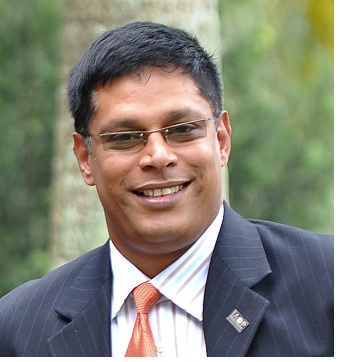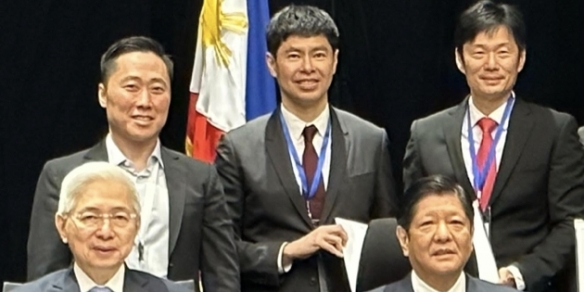Malaysia’s SSO industry must shift focus from cost to growth
By Gabey Goh August 21, 2013
- For SSO buyers, it’s not about cost but global footprints and borderless operations
- Asia Pacific Outsourcing Summit (APOS) to showcase regional opportunities

MALAYSIA’S outsourcing industry must cease its rhetoric of cost-based competition and country comparisons for it to move on to the next level, an expert said.
The country is selling itself short by focusing on the wrong things, said Bobby Varanasi, strategic advisory board member at the International Association of Outsourcing Professionals (IAOP), an organisation and advocate for the outsourcing profession.
“The first is to not ask the question of competitiveness as what’s more important is what the country gets out of the shared services business sector – whether there is a sustainable environment and people are doing the right things,” he said.
Varanasi said there is a significant problem in making comparisons between markets, because for any buyer, it is about global footprints and borderless environments for operations.
“There is a need to shift from a cost-centric process to a growth-centric process. I think everyone did that positioning in the last 20 years, and companies are now thinking of shared services operations as a cost centre and rather see Asia Pacific as an ideal region to invest in what will be revenue-generating operations,” he said.
“Asking ‘Is Malaysia the best?’ is the wrong position to take as many corporations view Asia Pacific as a market, with Malaysian being one of the more attractive locales within it.
“In fact, more often than not, Malaysia sells itself short in the persistent trend of trying to compare itself with other markets,” he added.
 With companies approaching their outsourcing strategy from a regional perspective, Varanasi (pic) said that it is up to Malaysia to position itself as a hub amongst many hubs, and avoid the cost conversation prevalent in markets such as Africa and Brazil.
With companies approaching their outsourcing strategy from a regional perspective, Varanasi (pic) said that it is up to Malaysia to position itself as a hub amongst many hubs, and avoid the cost conversation prevalent in markets such as Africa and Brazil.
“It doesn’t matter if you’re ranked 34th if you still have investors coming in every five years,” he added.
It was a view echoed by David Wong, chairman of Outsourcing Malaysia, an initiative of the outsourcing industry and a chapter of national ICT industry association, Pikom.
“Malaysia does need to find its own niche to leverage on, and there are verticals we have identified in which the industry can differentiate itself, especially in areas such as Islamic banking services, oil and gas, logistics, and financial services,” he said.
Wong said the industry would continue to strive to achieve the intended shift toward high value Knowledge Process Outsourcing (KPO) services, with more and more companies already entering the space.
He said that Outsourcing Malaysia has already embarked on initiatives to help local players grow and compete, outlining three key areas of focus: Increasing international exposure and access to outside market; talent building and retention; and beefing up industry resources and access to market data.
“These are the key thrusts we have in place to better equip our companies,” he said, adding that potential buyers of outsourcing services operate from a perspective of a borderless world, and want to pick locales to their organisations’ advantage.
“So it is a question of demonstrating the advantages they can have with Malaysia as one of these locations,” Wong said.
KPMG executive director Woon Tai Hai said that when his consultancy firm helps clients from Europe and the United States pick locations to establish their operations, the prevalent approach was to look at the linkages in place within the region.
“This preference for the ease of cross-border trade and emphasis on linkages has become very clear in the last 18 months,” said Woon, also the chairman of Pikom.
The increasing regional-centric approach for potential buyers in the outsourcing space has also prompted moves from i2M Ventures Sdn Bhd, a wholly-owned subsidiary of Khazanah Nasional Berhad.
The company has been tasked with developing strategic investment promotion initiatives for the Shared Services and Outsourcing (SSO) sector in Nusajaya, in the Iskandar Malaysia development hub in the southern Malaysian state of Johor.
“We have identified the key economic corridor that stretches from Kuala Lumpur and Johor to Singapore; and from a strategic perspective, have positioned Iskandar Malaysia to fit into this,” said Zulfiqar Zainuddin, i2M managing director.
He said that in terms of Iskandar’s SSO focus, the project has been in planning for the last two years, with the first client being Frost & Sullivan.
The global consulting firm established its Global Innovation Centre in Iskandar Malaysia in 2012, and hopes to create 830 new jobs by the end of 2019.
“I am happy to report that after eight months in operation, Frost & Sullivan has managed to hire 40 people, a quarter of which are Malaysians returning abroad from markets such as Singapore, China and the United Kingdom,” said Zulfiqar.
He said that there were more on-going discussions with various companies, and that i2M hopes to be able to secure an additional four to five companies to be located in Iskandar Malaysia by the end of the year.
“The next 18 months will be crucial as we try to match the demands of industry with the infrastructure and commercial developments for Iskandar Malaysia,” he added.
When asked what companies were interested in setting up SSO operations in the southern development hub, Zulfiqar claimed there was a lot of interest from multinational corporations which already have a base of operations in Singapore.
“We are also getting interest from Singaporean companies, and a big chunk of Malaysian corporations and SMEs (small and medium enterprises) which are looking to Iskandar Malaysia to expand their operations,” he added.
There has also been some interest in greenfield investments from US and European companies; however, Zulfiqar noted that the preference for this category of companies tended toward more mature locations such as Kuala Lumpur, Singapore or Manila.
“The Singapore factor is very significant … with property prices in the country continuing to rise and the issue of space, more companies are looking to shift to locations such as Iskandar Malaysia across the border where the cost savings on manpower and utilities can range from 30% to 50%,” said Outsourcing Malaysia’s Wong.
Next Page: Regional event to showcase outsourcing opportunities


